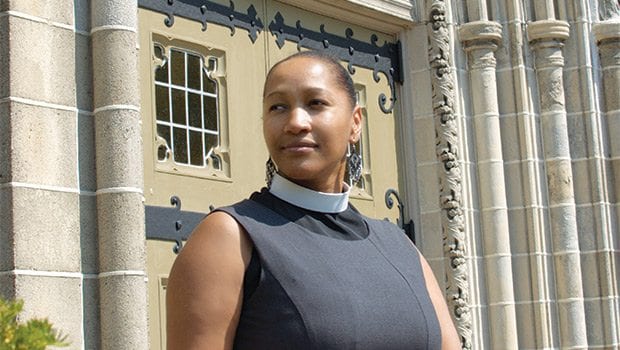
In January, I get lots of invitations to speak on Dr. King’s birthday. This year I was asked to speak on the anniversary of Dr. King’s death.
On April 4, 1968, Dr. King was in Memphis, Tennessee to support striking sanitation workers who were demanding fair wages. Their motto was “I Am A Man.” Dr. King was in solidarity with them because he recognized that paying people a living wage is part of respecting their human dignity.
Speaking about economic justice was not new for Dr. King. On April 22, 1965 he came to Boston to support a coalition of Massachusetts organizations calling attention to school segregation and housing injustice. This group asked Dr. King to come to Boston to shine a light on inequity in our city.
Unfortunately, this part of Dr. King’s legacy is rarely celebrated. He has become such an icon that people laud his memory without paying enough attention to his message. For instance, as multi-billion company, McDonald’s has featured the image of Dr. King in commercials while they pay their own workers barely enough to survive or secure decent housing.
Last year, I met with workers who are fighting for a wage of $15 an hour that will allow them to live and work in our increasingly expensive city. I met a woman who works at the Dunkin’ Donuts down the street from my church. She works a full time job, yet lives in a homeless shelter because she does not make enough to afford an apartment for her family in the costly Greater Boston housing market.
As a Boston native, I have watched our city get more expensive and it is becoming harder and harder for people to survive. Economic inequality is also deeply connected to racial injustice. People of color are a disproportionate percent of the low-paying workers in Boston and around the nation. More than half of black workers in America are paid less than $15 per hour and nearly sixty percent of Latino workers are paid less than $15 per hour.
In his parable of the Good Samaritan, Jesus tells of a priest who sees a man lying by the side of the road and crosses over to the other side of the road rather than help the man. Maybe he was in a rush to get to church, maybe he was worried that the man would dirty his robe. But for whatever reason, he ignored this man’s needs. This priest is lifted up as a man who had violated the moral imperative to love his neighbor as God commands.
As a woman of the cloth, I cannot keep walking by the Dunkin Donuts to get to church without addressing the needs of people who work there. All they are asking for is a wage that is worthy of their human dignity. Underpaid workers from the Fight for $15 have selected April 4 as a nationwide day of action to fight racism and raise pay. I stand with these workers in accordance with my faith and in the spirit of Dr. King. I call on all people of conscience to do that same. In our democracy, elected leaders have a sacred duty to put the needs of the poor ahead of the demands of the powerful, but whether you are an educator or an investment banker you too can carry on the legacy of Dr. King by standing for wages that will allow people to live and work in our city with dignity.
Rev. Mariama White-Hammond is a minister at Bethel A.M.E. Church in Boston and a leader in the Massachusetts Moral Revival.






